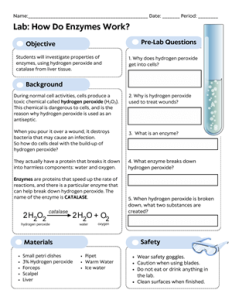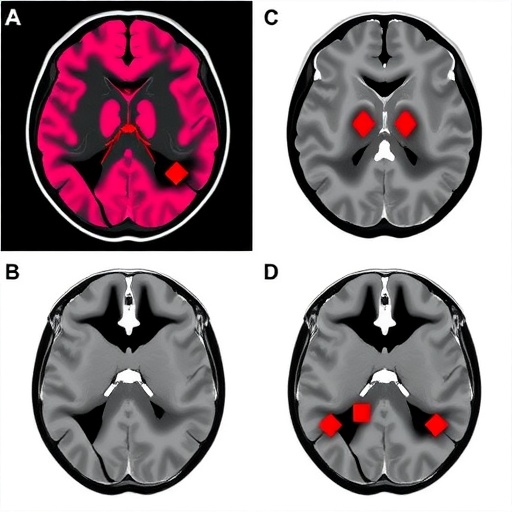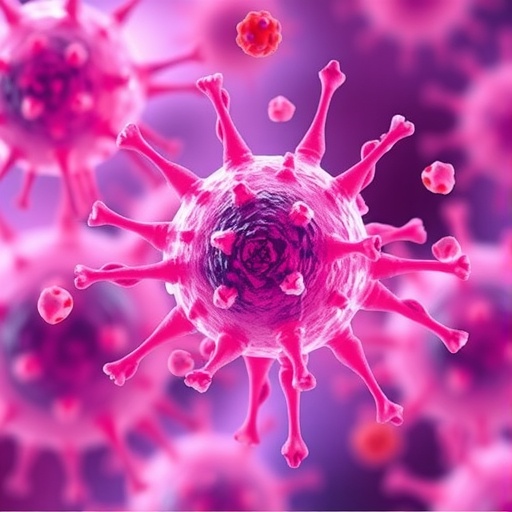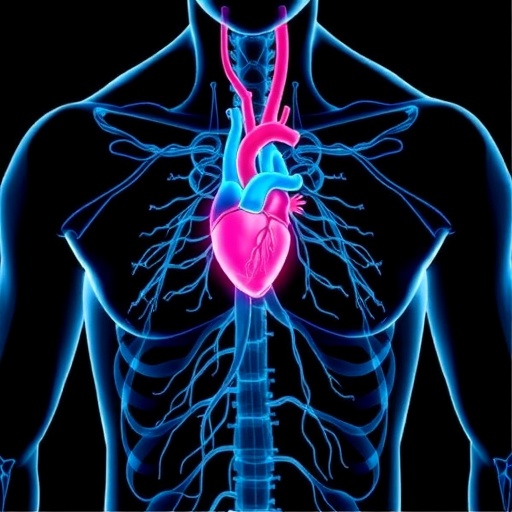PROTECT YOUR DNA WITH QUANTUM TECHNOLOGY
Orgo-Life the new way to the future Advertising by Adpathway
Explore how enzymes work with this engaging lab. I redesigned this lab with freshman students in mind. The directions are simple. Students drop hydrogen peroxide onto raw liver, and observe the bubbling. The bubbles are oxygen as it is being released in the reaction.
The lab handout includes a background section that explains how enzymes work. It includes the chemical equation of the reaction and pre-lab questions. The materials are easy to acquire from grocery stores.
The activity explores several concepts about enzymes, such as how they can be reused. It also examines how enzyme reaction rate changes with temperature. Students compare the base reaction with liver that has been warmed or chilled.
Finally, students synthesize their observations and explain what happened in the experiment. A final question asks them to think about a scenario where they have an old bottle of peroxide and need to find out if it still works.
I usually pair this activity with a discussion on enzymes, and even whether hydrogen peroxide is a good antiseptic. Spoiler: it’s not the best. The bubbling makes it seem like it’s working, but it also indicates that it’s damaging your own healthy cells. For more details on hydrogen peroxide, check out this interview with an ER physician. You can also see all of my biology resources on my class site.
I’ve used this lab many time over the years, and have various student handouts. I made this newest version with Canva. If you want a pretty worksheet, you can access it there, make a copy, and edit it.
Other Resources on Enzymes
Enzyme Coloring – color a graphic showing how enzymes and substrates interact
Analyzing Graphics, Enzymes – shows the induced-fit model, and graphs with the optimal temperature and pH
Catalase Activity with Sodium Alginate – for more advanced classes (AP Bio)
Case Study – Understanding Lactose Intolerance – examines the lactose enzyme and why some people cannot digest milk























 English (US) ·
English (US) ·  French (CA) ·
French (CA) ·